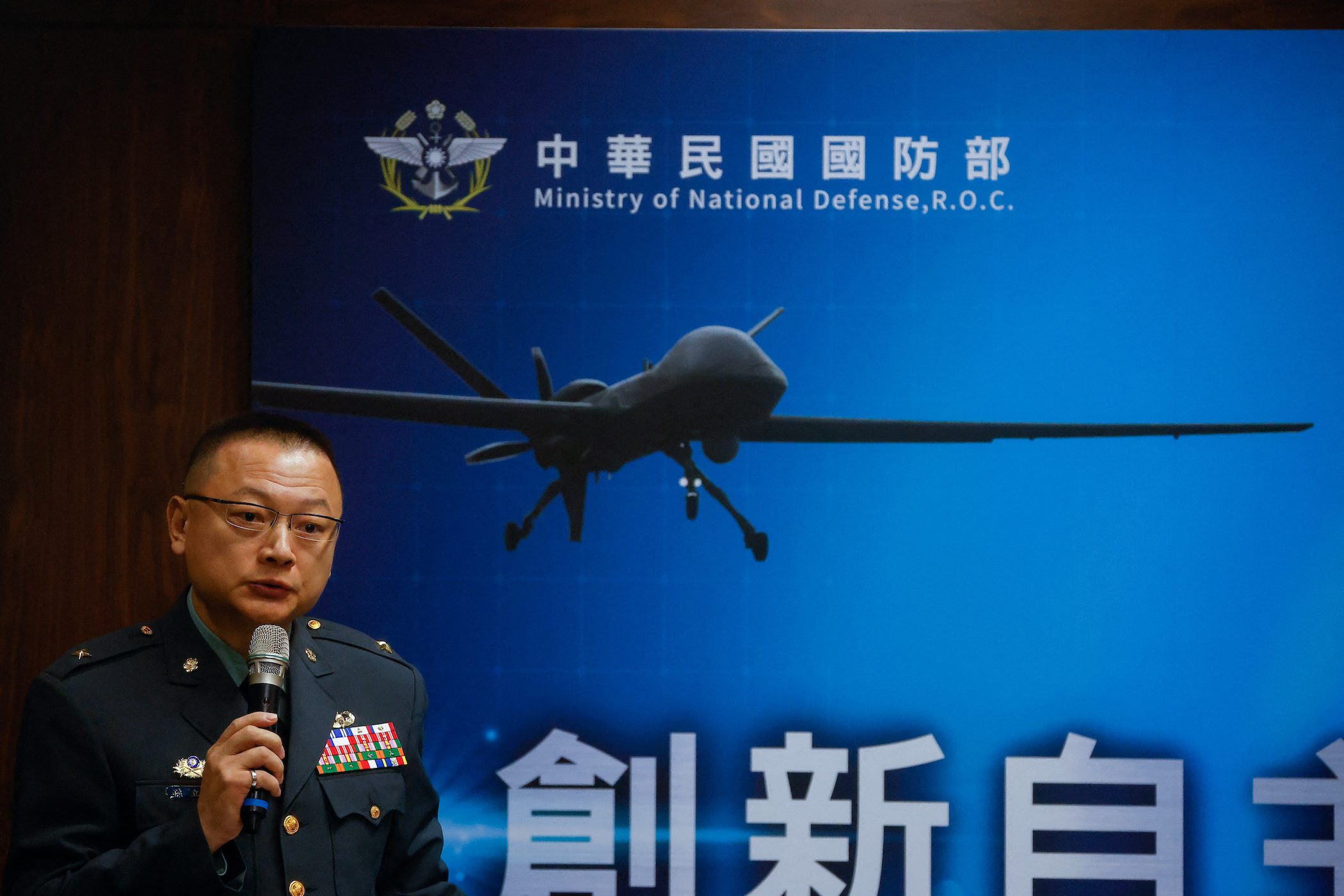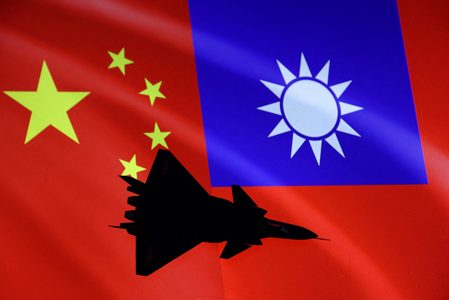SUMMARY
This is AI generated summarization, which may have errors. For context, always refer to the full article.

TAIPEI, Taiwan – Recent Chinese military movements around Taiwan were “abnormal,” the island’s defense minister said on Friday, September 22, flagging amphibious exercises in addition to drills Taipei has observed in the province facing the island.
Taiwan has reported an increase in such activity during the past week, as dozens of fighters, drones, bombers and other aircraft, as well as warships, have operated nearby.
China, which views democratically governed Taiwan as its own territory, has in recent years carried out many such drills around the island, seeking to assert its sovereignty claims and pressure Taipei.
“Our initial analysis is that they are doing joint drills in September, including land, sea, air and amphibious,” Defense Minister Chiu Kuo-cheng told reporters at parliament.
The “recent enemy situation is quite abnormal”, he added.
The comments came after an unusual statement from the defense ministry on Thursday, that it was keeping watch on Chinese activities near Dacheng Bay in the southern province of Fujian, facing Taiwan.
This is an area where Taiwan security sources say China performs landing drills.
China has not said anything about the drills around Taiwan, and its defense ministry did not respond to two requests for comment.
Chiu said releasing the information about Dacheng Bay was in line with his ministry’s principle of keeping the public informed.
China carried out landing drills in Dacheng Bay in September last year and the year before that, said Chieh Chung, a military researcher at Taiwan’s National Policy Foundation think tank.
Those exercises featured civilian ships with equipment practicing “dockless unloading,” to simulate a situation in which they might need to land after port facilities are knocked out of action or destroyed, Chieh said.
However, China would be hard pressed to carry out a frontal, amphibious invasion of the island, given geographic difficulties, a senior US defense official told Congress on Tuesday.
Last week China also dispatched more than 100 military ships for regional exercises in areas such as strategic waters in the South China Sea and off Taiwan’s northeast coast, a regional security official told Reuters on condition of anonymity as they were not authorized to speak to the media.
China traditionally performs large-scale exercises from July to September, Taiwan’s defense ministry has said.
Earlier on Friday, the ministry said it had detected 24 Chinese military aircraft entering Taiwan’s air defense identification zone during the previous 24 hours, with at least 17 crossing the median line of the Taiwan Strait, according to a map it published.
The median line used to serve as an unofficial barrier between the two sides until China’s air force began regularly crossing it last year.
A second security source told Reuters, also on condition of anonymity, that China was most likely seeking to wear out Taiwan’s much smaller military with constant missions so close to Taiwan, especially with longer flights along the median line than before.
“China is seeking to normalize these activities and push Taiwan into a corner,” the source said, adding this risked miscalculation if Chinese ships or aircraft got too close and Taiwan opened fire.
Taiwan has frequently said that it would remain calm and not escalate the situation, but that it won’t allow “repeated provocations” from China, whose forces have so far not entered Taiwan’s territorial seas or airspace. – Rappler.com
Add a comment
How does this make you feel?




![[ANALYSIS] Cognitive warfare: The tip of China’s gray zone spear](https://www.rappler.com/tachyon/2024/05/cognitive-warfare-china-may-18-2024.jpg?resize=257%2C257&crop=472px%2C0px%2C1080px%2C1080px)


There are no comments yet. Add your comment to start the conversation.